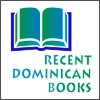
Donna Markham, OP  Donna Markham, OP is the prioress of the Dominican Sisters of Adrian, MI and former President of The Southdown Institute, Ontario, Canada. a treatment center that provides in-patient and out-patient care for clergy. Donna is a licensed clinical psychologist. She also served as special assistant to the president at Georgetown University, where she was the director for leadership initiatives. Donna, you have been in a leadership role for your congregation and previously in leadership of Southdown, what do you see as some essential characteristics of successful leadership? Leadership is fundamentally about passion for the mission of the group. Good leaders feel compelled to take action on behalf of the mission and they are willing to take the risks inherent in engaging in such initiatives—even though sometimes those risks might end in perceived failure. A certain ability to think beyond what has been and look toward what might be is crucial for these times. Seeing the goodness in the membership of the group and calling people to hope and to a deep belief in what can be accomplished together are qualities that lurk in the hearts of excellent leaders! Much has been made of the distinction between managing and leading, how does a good leader stay out of the manager trap? Staying focused on the vision of the group—that is, on the members’ articulation of its communal “best self” in response to the crying needs of the times—inoculates the leader against micromanagement. Additionally, knowing one’s own limitations and inviting the most talented folks one can find to join in implementing various tasks-at-hand comprise the frame for a wonderful and complementary relationship between leadership and those who have the unique skills of managing. Leaders who cannot delegate will find themselves exhausted and dispirited long before their tenure is completed. Is there a distinctively Dominican way of leading? (What in our tradition speaks to good leadership?) Our tradition of participative governance and our long-held belief
that true authority resides in the communion of the members position
Dominicans well in this historic period. We have known since
our mediaeval foundations that authoritarian models of leadership
are generally not effective. Dominic envisioned a different way. While
we may not be consciously aware of how these ancient values resulted
in a leadership style that differs from many other religious Orders,
my rather biased sense is that it has resulted in healthier and
more mature group functioning in the service of our preaching mission. There has been considerable research done pertaining to the issue
of leadership development. Can leaders be taught or are they
born? Many substantive studies indicate that leadership skills can
be taught and, thus, once having acquired those skills a person
can function as an adequate leader. The qualities
that make someone an outstanding leader, however, are
far more elusive and likely not simply able to be learned or acquired. Every
new Dominican should have opportunities to learn the skills needed
to be a good leader. The needs of the mission are so great
that all of us, young and old, must be able to take lead roles
in coalescing others in response to such urgencies. Does a strong commitment to collaboration water down strong leadership? Quite to the contrary. When collaboration is understood as garnering the best thinking of the group in its response to achieving its mission, groups are far more likely to achieve more creative outcomes and make bolder decisions than any individual would on his or her own. Smart leaders are not threatened by enlarging the circle of wisdom. It is all about responding to the mission—not about an individual’s conscious or unconscious need to control. Collaboration fails when leaders are insecure, threatened or unimaginative. Can you share a moment or situation in which you wish you could have done something different? That is, if you had to do it over again you would? Any time I have reneged on making a difficult decision because of fear that I will not be liked, I have regretted it. One thing I have learned is that, with good counsel and considerable prayer, making a decision that serves the common good is more important than feeling affirmed by everyone. How do you view the current trends toward reconfiguration in
US Dominican congregations? What books are on your nightstand? Life and Fate by Vassily Grossman; Thirst: Poems by
Mary Oliver; What is the What? by Dave Eggers; The
Solace of Fierce Landscapes: Exploring Desert and Mountain Spirituality by
Belden Lane I would have to say Albert Nolan’s Jesus Today: A Spirituality
of Radical Freedom. I found this to be a book that
was not only helpful and inspirational, but provided a means
to read the life of Jesus in the Gospels in a way that connected
with our contemporary insights from the new sciences. I
have read a number of works pertaining to the universe story,
spirituality and our tradition and must say this has been the
most rewarding. I would love to meet Nelson Mandela. As a believer and as a psychologist, I would like to ask him how he was able to maintain hope through his imprisonment and how he was able to envision a world where freedom and forgiveness could outweigh enslavement and vindictiveness. He embodies qualities that I think all of us need in these times. Thanks so much Donna.
|
|
|---|
subscribe to
DomLife.org and receive a free email update every two weeks. unsubscribe |


